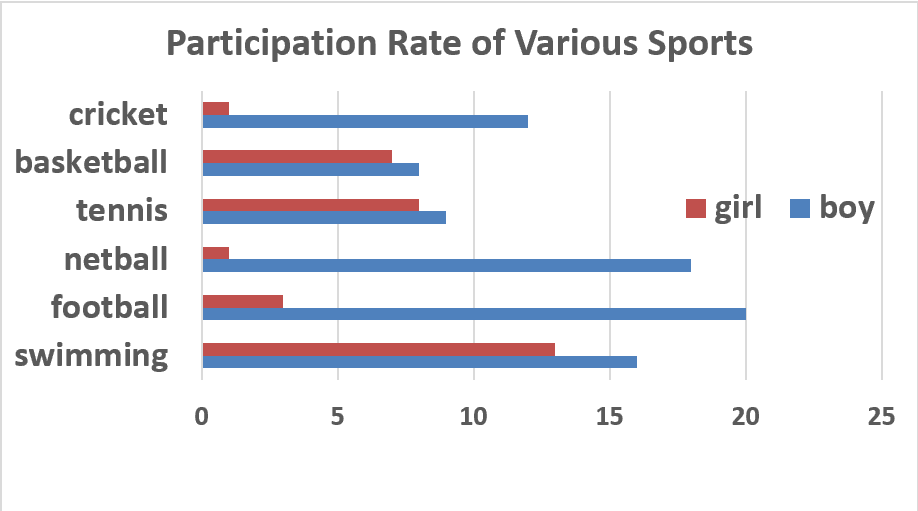托福独立写作备考中,很多同学都面临着一个问题,独立写作容易跑题。下面小编就和大家分享托福独立写作备考攻略,希望能帮助到大家,来欣赏一下吧。
托福独立写作备考攻略丨如何写作文才能保证不会跑题?
一.审清楚题目
首先应该审题,尤其关注作文题目中的绝对性词汇。
比如:Improving school is most important factor to sucessful development of country. 看到most ,我们自然想到用他因法。
二.熟悉各类话题
从历年托福真题回忆和官方真题Official真题上总结的托福独立写作常考的topics基本可分为:解释现象类和对立观点类。
给出两个对立的事物或者一个事物对立的两个方面,要求考生支持一方并进行说明。或给出两个对立事物或一个事物对立的两个方面,要求考生说明二者为什么不同或比较它们的优缺点,并给出理由。例如:Some people like different friends. Other likes similar friends.Compare the advantages of these two kinds of friends. Which kind of friend doyou prefer? Explain why.
opics从内容上可分为:
学习类:(如自学还是跟老师学,学广还是学精)
工作类:(如在大公司还是小公司)
生活类:(如喜欢在家里吃饭还是在餐厅吃饭)
电视电影类:(如电视电影疏远了家人的情感,你是否同意)
消费类:(如花在娱乐上,还是事业上)
环境类:(如政府投入环保的力度是否应该大于投入经济发展的力度)
古老建筑类:(如是否应该保留老建筑)
成功类:(如成功的衡量标准是金钱和荣耀,你的看法如何)
性格类:(如聪明的朋友比幽默的朋友重要,你是否同意)
三. 整理素材
用20秒的时间,整理脑中所有能用的素材,让这些素材称为支持你段落的骨架,然后开始确定段落的论点。尽量使你的语言句式丰富一些。形式主语,主动,被动,动名词To do作主语,倒装句,there be,以及强调句等等。特别强调一点,为了使你文章的逻辑清晰可见,要使用逻辑连接词。
四. 注意逻辑
把握好过渡词的使用,和适当的论述方法完善你的作文,使之成为一个逻辑整体。论述方法:条件(假设)法,比如:if 我按照论点那样做,就能cause siginificant effects,除了用if,还能有with, when, only through + 方式+倒装等。
五.写作套路要相对稳定
在新托福独立写作中,用这总分总种思维最容易获得高分,所以你要在平时的练习中一定要注意写作的结构。托福作文应该写成三个层次,也就是我们确立了中心思想后应该找到三条理由来支持。托福作文五段论:第一段为中心思想段;二、三、四段为支持段落;最后一段为总结段落。其实这个东西并不是绝对的,由自己的思想内容来决定。
六. 论据论点充分
托福独立作文最重要的因素是什么?当然是论点和论证。一篇好的作文,论点可以提纲挈领,论证可以丰富文章内容。托福写作由于考试时间的限制,很多英语程度好的学生也会出现一些问题。比如说一个学生对作文的论点言之凿凿,但就是写不出东西,或是写不出令自己满意的句子。所以,上考场前,脑中一定要装一些东西,好的例子,好的句子等。
这里强调论据的重要性,不是忽视逻辑和论点的重要性。相反,只要你能够掌握一些万能的论据,对你谋划全篇的结构,以及段落发展,是有好处的。论据的准备也可以称为素材,这种素材可以是一个短语,一个人名,或是一个完整的例子。这种例子能够辅佐你的乱点,能够画龙点睛。新托福独立写作是讲究技巧的,只要把一篇作文的条理理顺,再用自己的语言组织论点和论据,丰富文章的内容,然后再稍加注意一下措辞,那么,拿到高分也不是那么困难了。
托福独立写作容易跑题其实主要原因是大家平时练习的时候没有按照要求来练,其实托福写作备考过程中,很多同学只注重提升作文质量,忽略文章是否切题。如果大家在写作中常会跑题,可以参照上文中练习方法。
托福写作:题库范文附思路解析
1. What makes a good son or daughter? What are the important qualities of a good son or daughter? Have these qualities changed or remained the same over time in your culture? Use specific reasons and examples to support your answer. 参见:[15]
『范文』 In traditional Chinese society, a person's most important relationship was that between a parent and a child. The only measure of whether a child was good or bad was whether or not they were obedient to their parents' wishes. Traditionally a Chinese family had many children. Boys were expected to go to school and, after they grew up, to have a son of their own, and to manage the family's affairs. When his parents grew old, a son was expected to live with and care for them. A girl's parents would usually arrange her marriage to someone who she did not love and without consulting her. After she was married, she was no longer a part of her biological family; instead she became an adopted daughter of her husband's family and had to respect her husband's parents as she would her own parents. She was also expected to bear her husband a son. A child who broke these norms, defied or disrespected their parents was seen as worthless or immoral at best, and could legally be killed by their parents in extreme cases. Today of course, China is very different. Chinese children are still expected to respect their parents, but society is not as conservative as it used to be. When a Chinese son gets married, he will often prefer not to live in the same house with his parents, although he might still feel quite obligated to care for them in their old age. The greatest strides have been made by Chinese women, who now hope that their daughters grow up to marry someone that they love, and who is able to take good care of them. The major revolution in the Chinese family since 1980s has been the introduction of the one-child policy. Since Chinese families are now usually only allowed to have one child, the roles of parent and child have almost been reversed! Today's children in China, while still expected to treat their parents with respect, have become the "little emperors and empresses" of their families. Many "little emperors" are so doted on by their immediate and extended families that they become very spoiled, demanding toys, candy, and attention all day long. Because of the changing structure of the Chinese family, the bonds between parent and child, while still of primary importance, are characterized less by rules and respect and more by love.
2. A large company or a small one, which do you want to work for? Some people prefer to work for a large company. Others prefer to work for a small company. Which would you prefer? Use specific reasons and details to support your choice.
『分析』选择哪一个都无所谓,列出三个理由。不要忘了提及另外一种选择也有一些好处。也可以说不同的情况下可以做出不同的选择。
『范文』 While some people enjoy the relative comfort, stability, and prestige of working at a large company, I prefer to live life on the edge. Given the choice, I would much prefer to work at small company where I could have more responsibility, more excitement, closer relationships with my coworkers, and a greater sense of accomplishment than I could have at a big company. If I worked at a large company, my role at the company would be highly specialized and narrowly defined. At a smaller company everyone has to take on extra responsibilities to make the business work. For instance, if I worked at a small computer software company as a programmer, I might not only program, but also have to make trips to potential clients for sales. At a large company, the sales department would talk to clients, and I would be stuck in the same boring routine every day with less responsibility. I might less in touch with what the clients wanted if my responsibilities were limited to programming. I crave excitement, so the idea of working for a small company particularly suits me. While working at a large company can offer more job security, workers don't usually get any of the annual profits. But if you work for a small company, profits are more likely to be shared at the end of the year. This means that the harder you work, the more potential there is to make a large amount of money. It is also especially gratifying when you can see how your hard work helped to build or save the company, a feeling of accomplishment that is difficult to attain when working in a large company. Finally, working together in a small company creates a sense of special closeness between colleagues. You have to both trust and depend on each other for everything. This closeness is not only between people within the company but can also extend to your clients and suppliers, all of whom you can get to know on a first name basis. Business deals become less impersonal and more pleasurable when you work with people you trust and like. This trust is both deeper and easier to build when you work for a smaller company.
3. Reasons why people work other than earning a living People work because they need money to live. What are some other reasons that people work? Discuss one or more of these reasons. Use specific examples and details to support your answer.
『分析』列出两、三个除了钱之外的工作的理由:兴趣(比如有些歌星) 理想(比如有些医生、律师) 成就感(比如教师) 还有些人上班工作只不过是为了打发时间
『范文』 One of the most overlooked reasons why people work is to help other people. Government officials, social and charity workers, and religious organizations, and others all work not only for their own salaries, but also work for the common good. They labor for others because of their moral convictions, for reasons of personal reciprocity, and because they want to make society more stable, thereby benefiting themselves and others. Some of the most famous charity workers in the world have been affiliated with religious groups. For instance, many of the foreigners living in the poor regions of Africa are doctors, teachers, and other professionals who are paid by religious organizations to help the poor, sick, and needy people there. These professionals could make much more money if they worked in rich countries. They have chosen to help poor people because they believe their religion tells them to help people who cannot help themselves. They are working for others for moral or religious reasons. Some people work for other people because at some time in their lives, someone else has helped them. Many teachers can tell stories about a particular teacher who changed their lives. The gift a great teacher gave to them inspired them to become teachers themselves. Likewise, many people become doctors because a doctor saved one of their family member's life and they felt like they owed a debt of gratitude that money could not repay. To such people, the motivation for working is not the paycheck at the end of the month, but the smile on a child's face when they read their first book, or the look of joy on new parents' faces when they see their healthy newborn baby. Finally, some people work for others because they believe that society is only safe and stable when all of its members are happy. These people include good government officials who try to make policies that benefit the poorer classes of society. They know that only by making policies that help poor people live richer, happier lives can they lower crime, sickness, and poverty rates, and make society safer and happier for all citizens.
4. Is face-to-face communication better than other types of communication? Do you agree or disagree with the following statement? Face-to-face communication is better than other types of communication, such as letters, email, or telephone calls. Use specific reasons and details to support your answer.
『分析』同意或者不同意,都是错误的。不结合具体情况,无法判断哪一个更好。先比较两种沟通方式的优缺点(relative merits) 然后根据不同的情况说明那种方式更好:跟老板、同事沟通,face-to-face communication更好跟愤怒的投诉顾客,telephone更好一些跟情人沟通,当然face-to-face更好。相关题目:[160]
『范文』 While many modern forms of communication like phone calls, email, and letters, are extremely convenient, in my opinion, nothing beats speaking to another person face-to-face. Face-to-face conversation is the ultimate form of human communication because it is interactive, and allows a broader range of possibilities for communication in the intricacies of tone of voice, body language, and can add the intimacy of touch. The first and most obvious advantage that face-to-face communication has over a letter and email is that there is the ability for an interactive conversation. If the sender of a letter or an email does not write clearly, or the recipient does not understand part of the correspondence, then much time must be spent to clear up the misunderstanding. In a face-to-face conversation, misunderstandings are easily dealt with because of the immediate and interactive nature of a face-to-face conversation. The argument might be made that telephones and instant messaging services like MSN and ICQ are equally viable formats for interactive conversation, with the added benefit of being available over long distances. I would still argue that face-to-face conversation is better because you can see the other person. Not all communication is verbal; the meaning of much of what we say depends on our body language and tone of voice. Joking and irony are particularly difficult to express, identify, and enjoy without seeing the expression on someone's face, or watching the movements of their body. Finally, if the goal of communication is to maintain or deepen a relationship with someone, business partners, friends, husbands and wives, or parents and children, face-to-face communication offers the option of communication by touch that is unavailable even if we could communicate by video. Trust and respect between businesses partners can be established with a firm handshake. No amount of body language can convey the excitement of a high-five between friends, and no number of words can communicate the comforting embrace of a loved one. Touch is the first foundation of our human relationships, before spoken language, and it is only available when people communicate face to face.
5. Do what you already do well or try new things? Some people like to do only what they already do well. Other people prefer to try new things and take risks. Which do you prefer? Use specific reasons and examples to support your choice.
『分析』讨论两种attitudes各自的好处。然后在不同的情况下,选择不同的态度。比如:锻炼身体有很多种方法,如果我已经习惯了慢跑,只要能够达到身体健康的目的,就不必要花时间练习一些其他的体育项目了。放松的时候可以听听音乐——往往是同一首歌或曲子已经听了很多年。但是看电影,却很难做到重复看同一个电影几百遍。
『范文』 A defining characteristic of people is the degree to which they are willing to break out of their comfort zone. Old habits and well honed skills give great comfort to any individual, but new personal challenges build character and allow one to grow as a person. It was not until very recently that I fully comprehended this. Today, while I still enjoy doing the things I am already good at, I have become increasingly eager to try new things because I have learned the value of new experiences. I have always been a talented athlete, and I still find great comfort on the basketball court and in the swimming pool. These are familiar places where I feel at home. They are also places where I continue to excel. However, not so long ago my older cousin, a person whom I have always looked up to and admired, reminded me that there is nothing wrong with discovering new talents or doing many different things very well. He introduced me to music. For the past sixteen months I have been learning how to play the guitar, and this new experience has been extremely rewarding. Initially, I struggled. My inability to play even the simplest of notes frustrated me, and quite often I thought about giving up. Yet with my teacher's encouragement I continued to make progress. Now my appreciation for music is much more profound than ever before, and my appetite for new experiences is whetted. Together with a couple of classmates I have formed a book club. Every week we get together and discuss a piece of literature. Of course, my friends were hesitant to give this new idea a try at first. Nevertheless, I have convinced them to be risk takers, and now all of us enjoy not only each others' company but also books and stories, which is a completely new experience for all of us. Together we are planning to learn how to dance and to purchase bicycles to explore the area around our hometown. We don't want to limit ourselves to what we know already.
托福独立写作备考攻略相关文章:
★ 英语写作
托福独立写作备考攻略
上一篇:托福独立写作范文解析
下一篇:如何提升托福写作句子多样性




